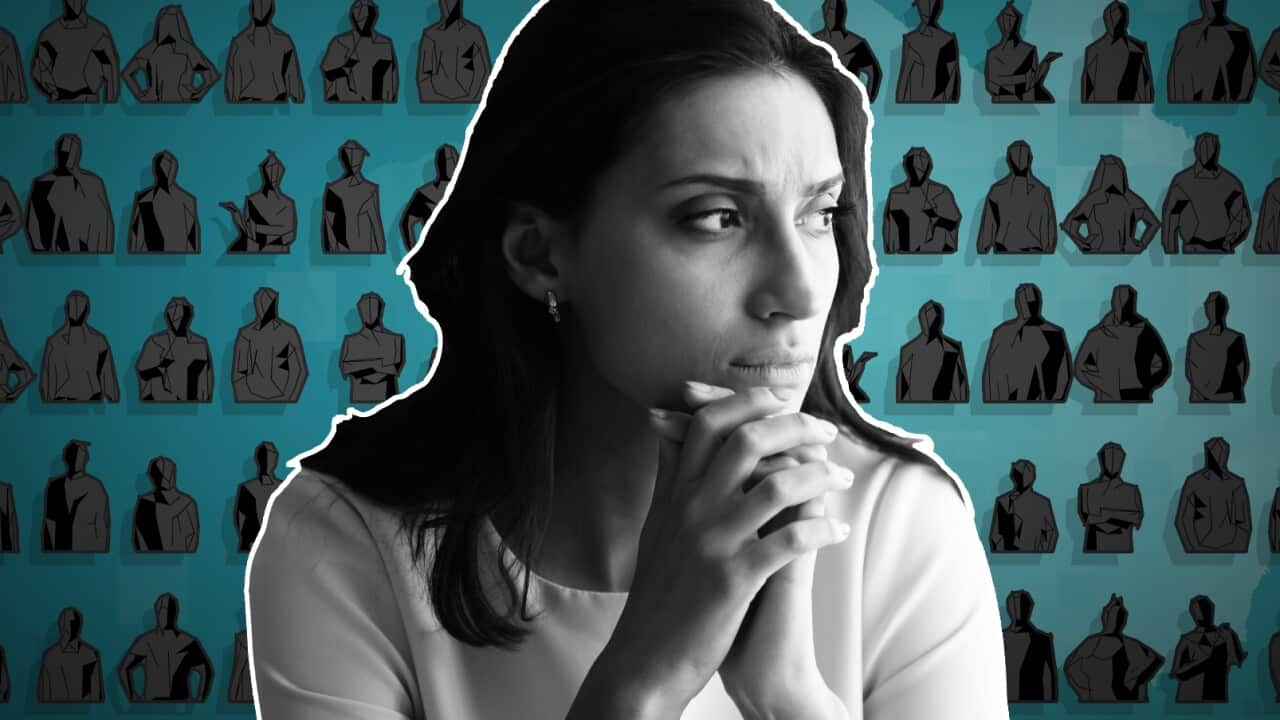Key Points
- Experts say the latest wave of COVID-19 is likely to result in another increase in poor mental health.
- They say it's important people put strategies in place to deal with any stress or anxiety they may feel
With more than 40,000 new cases being recorded across Australia each day and hospitalisations on track to exceed the January peak, COVID-19 is back in the news.
Adding to this are , a potential return to working from home and fears about events being postponed once again, it's no surprise many people are feeling stressed and anxious.
So who's most at risk of developing poor mental health, and what can you do protect your well-being?
Who's at risk?
Professor Maree Teesson, director of the Matilda Centre and chair of Australia's Mental Health Think Tank, said there has been around a 10 per cent uptick in the number of people experiencing anxiety and depression around the country since the start of the pandemic.
"The people who had existing mental health problems, we saw really an increase in their experiences of anxiety and depression," she told SBS News.
"But we also saw new people developing an anxiety or depressive disorder that wouldn't have developed it had COVID not been around."
Dr Stephen Carbone, chief executive and founder of mental health organisation Prevention United said it's "very likely" that trend will be repeated in the coming weeks and months.
"I think with each new wave, it rekindles some of that stress and some of that anxiety," he said.
"It feels for some people like, 'Oh, I thought we were over this' or 'not this again' and that's quite stressful, constantly having to make that readjustment."
People especially susceptible to poor mental health during the pandemic include frontline health workers, and those more at risk of serious illness or death from COVID-19, Dr Carbone said.
Young people, women, and those working in insecure jobs, and with unstable accommodation are also most at risk, Professor Teesson added.
What can you do to protect your mental health?
For those who developed strategies to cope during previous waves or lockdowns, Dr Carbone said those should still help them this time around.
For those who haven't, the professionals have a few tips:
Acknowledge how you're feeling
"It's really natural to be feeling anxious and stressed and sad at this time, and sometimes, it helps to talk about it, sometimes it just helps to have a little cry," Professor Teesson said.
"We should cut ourselves some slack, and maybe understand that we won't be quite as productive as normal and it's going to take some time to adjust to this new normal."
Maintain perspective
"Being careful about not getting too negative or pessimistic, or catastrophising," Dr Carbone said.
"We've done it before we can do it again; most people got through okay."
Practice healthy behaviours
"It is about getting good sleep, regular physical activity, eating healthily," Dr Carbone said.
"There's a big connection between diet and mood, and also exercise and mood, so those things are really, really helpful.
"And obviously avoiding things that can harm our mental health, like excessive drinking, or illicit drugs."
Stay connected
"Spending time with others hanging out, talking through problems, sharing the load - they're really critical things," Dr Carbone said.
"We're social animals, so we need to connect," Professor Teesson said.
"Particularly as we're talking about masks, and as we're talking about increasing physical distancing, we should also be very focused on making sure we stay socially connected."
Switch off
"Give yourself a break sometimes from what is likely to be a barrage of media and social media," she said.
"It's really important to stay connected and know what's going on, but sometimes it's good to have a break."
Reach out for help when you need it
If none of the strategies you're using are helping to ease anxiety or stress levels, Professor Teesson said it's important to seek help.
At a basic level, that could be through a telephone helpline like Beyond Blue or Lifeline, Dr Carbone said.
"There are also a lot of online programs that are designed to help people, particularly in the early stages, where it might just be a mild form of stress, or depression or anxiety," he said.
"With programs like MindSpot, you can get regular telephone support from a clinical psychologist or trained mental health professional."
Dr Carbone said if the situation is slightly more serious, you may want to see your GP.
"They may manage the situation with you themselves, or they may refer you to a psychologist or some other counsellor. If things are quite serious and require more specialist skills, it might be to a psychiatrist," he said.
While it can sometimes be a lengthy process, Dr Carbone said that shouldn't dissuade people from seeking help for themselves or others.
"It can take a little bit of trial and error, and it can take a little bit of time finding what's right for you, but there are options out there, and it's really important that people give them a go," he said.
Readers seeking support with mental health can contact Beyond Blue on 1300 22 4636. More information is available at . supports people from culturally and linguistically diverse backgrounds.












